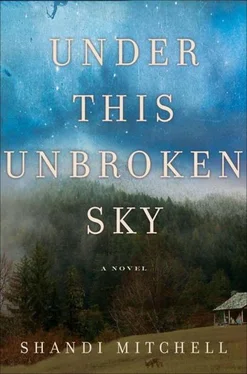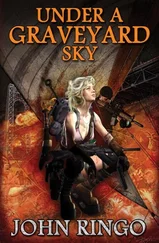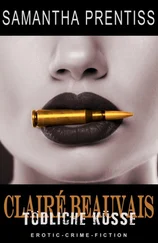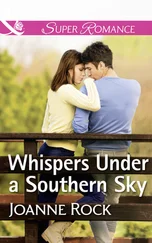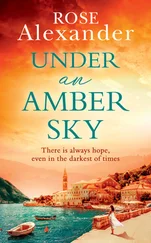MYRON TRAMPLES A PATH THROUGH THE SNOW ALONGSIDE the stone wall. The trail reaches all the way back to the lake. This is the best snow for trapping. When there’s just a dusting, the rabbits wander all over—willy-nilly. They’re almost impossible to catch; you can’t predict their route. But when it’s deep like this, they tend to follow the easiest route.
Myron sharpens the end of a willow branch and drives it into the snow. Rabbits love to eat willows. He pulls off his mittens and untangles the coiled wire. The cold metal sears into his warm palms. He straightens the wire, loops it once, threads it through a washer, then ties the end to a poplar stump. He bends the snare so that the noose is camouflaged among the willow twigs, adjusts the height until it skims the snow, then pulls it tight so the loop is six inches across. Wide enough for the rabbit to enter, but narrow enough to catch its haunches. He could rig a spring pole that yanks the animal up and strangles it. Some swear that method’s quicker and the meat doesn’t taste as strong, because the rabbit struggles less. Fear has a taste. But he’s never seen a difference in the killing method. Nothing makes dying easier.
He prefers to check the snares more frequently so they don’t suffer long. He goes out at dawn and dusk, the most likely time they’ll be feeding. He always carries his father’s .22, a little club made from white ash that he keeps in his back pocket, and his hunting knife. His father made him carry the rifle as a safety measure, in case he ever met with coyotes on the hunt for easy food. Last year, Myron saw plenty of tracks but never a coyote. They got half a dozen of his rabbits. Sometimes he’d find the snare, sometimes he wouldn’t. There’d be tufts of fur, spatters of blood, some entrails, but nothing else. Just tracks leading away.
His dog used to come with him. He could smell rabbits a hundred feet away. He’d tense up and point one leg, his whole body shaking with anticipation. Myron would crouch down low and scope the horizon. He’d see only white snow. He’d look harder where the dog was fixated and finally see a black nose and eyes, and then the shape of the rabbit would separate clearly from its white camouflage. Myron would give the signal and the dog would chase it down, until the rabbit veered in the wrong direction and the dog would snap its neck. He’d carry it back and lay it gently at Myron’s feet. He was a good dog. Then the coyotes got him.
Myron dusts the snow with his mitten, obliterating his tracks. He wishes that when the rabbits got caught, they would sit still and wait for him to come. But they always fought. Twisting and kicking, wrapping the wire tighter. He’s found them with their paws cut off; or with their bellies cinched so tight he’s had to cut them open to get his fingers around the wire. One was almost decapitated. The wire caught around its throat.
He doesn’t understand why they just don’t give up. Realize that there’s no escape. Sit peacefully and he’ll come by shortly. He’ll speak gently and make them feel that everything’s going to be okay. Then with one quick rap on the back of the head, hold them until their feet stop twitching. But it’s never like that.
He hears them crying before he reaches them. A sickening squeal that shivers through his bones. He finds them throttling their bodies, flailing and twisting. Their eyes bulging with fear, bubbles of blood dripping from their noses. They look him straight in the eye as he holds them down, You did this to me . He cracks their heads until their eyes empty. Sometimes it takes three or four blows, because his own eyes are closed. If he was rich and didn’t care how much a bullet cost, he’d shoot them, one shot behind the ears. Then he wouldn’t have to see their eyes.
Myron sits on the stone wall. The world darkens gray with the approach of night. It is so quiet, he can hear the silence. It has a sound, this quiet. A low, hollow pulse. Empty, yet all-embracing. Snowflakes flutter down, coating him white. He pops the lemon drop in his mouth and holds it on his tongue. Tart and sweet, it dissolves.
IT IS DARK BY SIX O’CLOCK. IVAN AND KATYA HAVE BEEN given permission to stay outside but aren’t allowed past the third spruce tree with the crooked top, about twenty feet from the house. They stand on twin boulders. Ivan’s rock is slightly higher and rounder. At the top of their lungs, they singsong Myron, Myron , pausing only to hear if he is answering. They call high and sweet. Myron .
It was a game they started last winter, when Myron was only twelve and the .22 was still too large for his hands. Maria started the chant one night, when he didn’t come home at the expected time. It was February. There was three feet of snow. It had been bitterly cold for weeks. Rabbits were scarce. All that week, the coyotes had been close. Howling through the nights. In the morning, their tracks passed by Anna’s. The snow was stained yellow where they had marked the corners of the house and shack.
That night, the children were already in bed, fully clothed. The stove was burning, but there was no warmth. The lamp had been blown out to conserve kerosene, but the shack was bright from the full moon stealing through the cracks. Maria was sitting beside the door, wrapped in a blanket, bundled in her coat and boots, listening for Myron when she heard the coyotes. One near, one far. A short, yelping howl answered by a long, plaintive wail. I’m here , they moaned .
She waited breathless for the crack of the .22, and when it didn’t come she stepped out into the night. Her heart pounding in her chest, her ears straining to hear, she willed her eldest son to come home. The night was frozen. The horse and cow, safe inside the barn, were quiet. Her little boy’s tracks led into the darkness.
Myron? she quietly called, as if she could make him emerge from the night’s veil. He would appear dressed in his father’s wool pants rolled up at the hems and wearing his father’s leather jacket that had been left behind for safekeeping. The shoulders too wide, the cuffs hanging past his mittened hands. The .22 slung over his shoulder. A little boy pretending to be a man.
The coyote wailed again, closer this time. With all her maternal senses electrified, her entire being strained to feel her child; to feel any sense of him being ripped from her heart.
Myron. Maria called as if he was on the other side of the barn and late for dinner. In the distance, a second coyote answered and, to the east, a third. Rage filled her belly. He’s mine, she screamed inside.
Myron! She hollered, reaching for him across the field, not caring who she woke. Myron! She screamed until her throat hurt. His name stretched into a long howl. Myron! Her call filled the night.
The children shuffled outside. Scared at first by the night, by the cold, and their mother’s cry. Myron! They peered into the dark, afraid to see what was on the other side, knowing that it could be one of them out there alone. Ivan was the first to join in, followed by Katya and then the others. Their voices swelled, a repeating chorus—spilling over one another: Myron… Myron… Myron…
He appeared like a ghost with two rabbits in hand. He scowled at them, embarrassed. Grumbled about them waking the dead. Kicked the snow off his boots and went inside to skin the rabbits. That was the first time they called him home.
Myron… Katya sings . Myron… Ivan bellows . Myron walks out of the night. He is taller now and stronger. His father’s pants no longer need to be hitched up. In his own, tightly fitting wool coat he could be mistaken for a young man. The gun sits comfortably in the crutch of his arm. Ivan and Katya run to greet him.
Читать дальше
